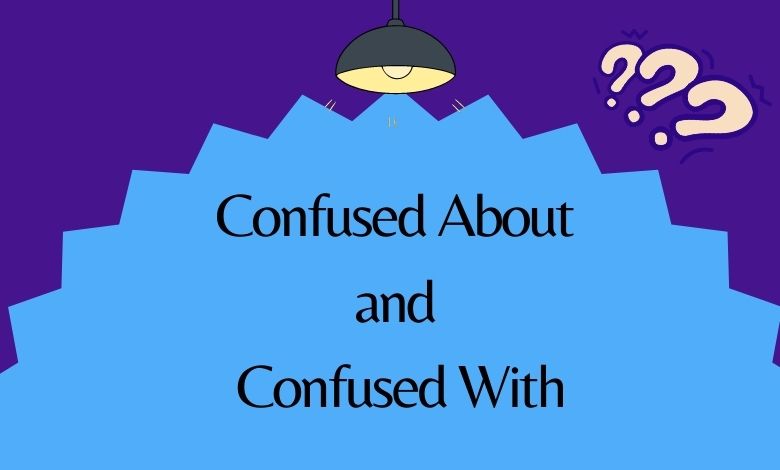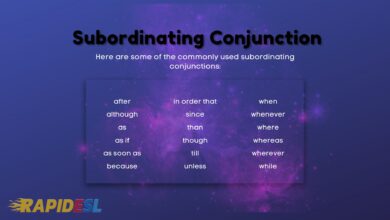
Confused About and Confused With. What is the difference?
Language is a remarkable tool that allows us to express our thoughts, feelings, and ideas. However, sometimes the nuances of words and phrases can lead to confusion, especially when similar-sounding expressions have distinct meanings.
One such pair of phrases that often cause confusion is “confused about” and “confused with.” Although they might seem interchangeable at first glance, they have subtle differences in usage that can significantly impact the clarity of your communication.
Confused About
“Confused about” is a phrase used to indicate uncertainty or lack of understanding concerning a specific subject, concept, or situation. It suggests a mental state of perplexity or doubt.
Examples:
- She is confused about which career path to choose after graduation.
- The students were confused about the instructions for the assignment.
- He’s confused about the sudden change in his friend’s behavior.
- They are confused about the new regulations regarding travel.
- I’m confused about the reasons behind their disagreement.
In each of these examples, “confused about” is used to express a state of mental confusion or uncertainty about a particular topic.
Confused With
On the other hand, “confused with” is a phrase used to describe instances where two things or people are mistaken for one another due to some similarity or shared characteristics. It implies a mix-up or an error in identification.
Examples:
- Some people confuse the twins with each other because they look so alike.
- The rare bird species is often confused with a more common one due to their similar plumage.
- The foreign dish was confused with a local specialty because of its appearance.
- His argument was confused with another person’s viewpoint during the debate.
- The historical event is sometimes confused with a similar event from a different era.
Here, “confused with” is used when there is a mix-up or misconception between two entities due to their similarities.
Key Differences:
The primary distinction between “confused about” and “confused with” lies in their meanings and the contexts in which they are used:
- “Confused about” pertains to a state of mental uncertainty or perplexity regarding a topic, concept, or situation.
- “Confused with” refers to the mistaken identification or mix-up of two entities due to their shared characteristics or similarities.
It’s important to use these phrases accurately to ensure effective communication. Misusing them can lead to confusion and misunderstandings, hindering the clarity of your message.
In conclusion, while “confused about” and “confused with” might appear interchangeable on the surface, they carry distinct meanings that can significantly impact the intended message. Understanding the nuances between these phrases will enhance your ability to communicate clearly and effectively in various contexts. Whether you’re expressing uncertainty about a subject or addressing mistaken identity, choosing the right phrase will make your communication more precise and insightful.
Here are some exercises to practice using “confused about” and “confused with” correctly, along with the key answers:
Exercise 1: Fill in the blanks with “confused about” or “confused with.”
- She’s always ___________ the difference between those two similar-looking flowers.
- The tourists were ___________ the local customs and traditions.
- The students were ___________ the new math concept the teacher introduced.
- Many people ___________ the actor’s real identity because of his role in the movie.
- I’m a bit ___________ the instructions for assembling this furniture.
Key Answers:
- confused about
- confused about
- confused about
- confused with
- confused about
Exercise 2: Choose the correct phrase to complete each sentence.
- People often ________ the two identical twins, thinking they’re the same person.
- He’s feeling a bit ________ the sudden change in his friend’s behavior.
- The students were completely ________ the complex chemistry formula.
- The foreign dish was mistakenly ________ a local delicacy due to its appearance.
- I’m really ________ the new regulations regarding parking.
Key Answers:
- confused with
- confused about
- confused by
- confused with
- confused about
Exercise 3: Rewrite the following sentences using the correct phrase.
- Original: They couldn’t differentiate between the two breeds of dogs. Rewritten: They were confused with the two breeds of dogs.
- Original: She’s uncertain about which painting is the original. Rewritten: She’s confused about which painting is the original.
- Original: The tourists often mistake the rare bird for a common species. Rewritten: The tourists often confuse the rare bird with a common species.
- Original: I can’t comprehend the intricate details of this scientific theory. Rewritten: I’m confused about the intricate details of this scientific theory.
- Original: His name is often mixed up with another celebrity’s name. Rewritten: His name is often confused with another celebrity’s name.
Key Answers:
- Original: They couldn’t differentiate between the two breeds of dogs. Rewritten: They were confused with the two breeds of dogs.
- Original: She’s uncertain about which painting is the original. Rewritten: She’s confused about which painting is the original.
- Original: The tourists often mistake the rare bird for a common species. Rewritten: The tourists often confuse the rare bird with a common species.
- Original: I can’t comprehend the intricate details of this scientific theory. Rewritten: I’m confused about the intricate details of this scientific theory.
- Original: His name is often mixed up with another celebrity’s name. Rewritten: His name is often confused with another celebrity’s name.
Practicing these exercises will help reinforce your understanding of when to use “confused about” and “confused with” correctly.
Check Out Other Articles:
English in Arabic: 17 English Idioms that Have Funny Arabic Translations





